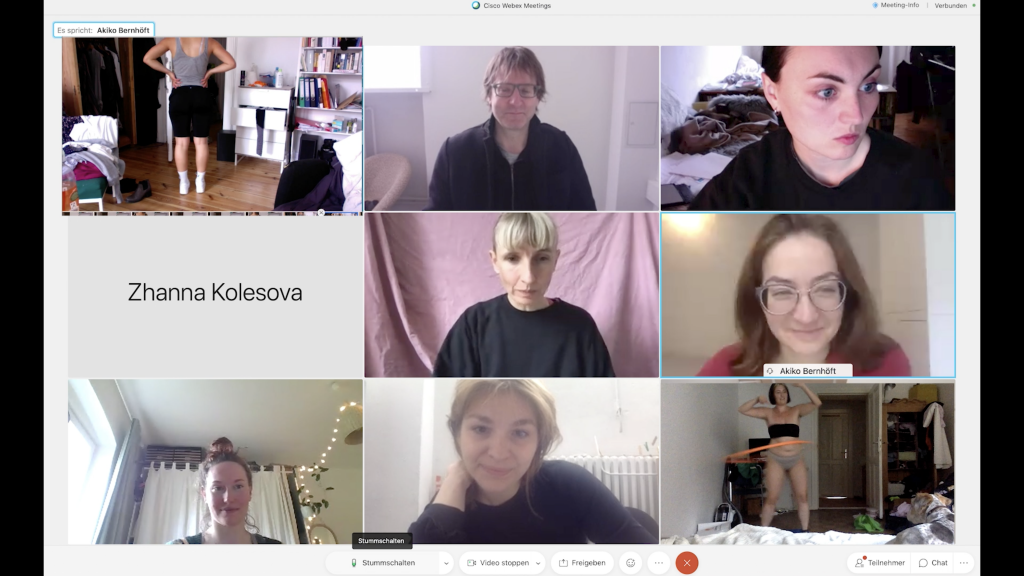
ON THE KEYBOARD by Maja Zagórska and Milena Bühring
Video documentation
Audio version
When I was young (young) (young)
Peace sign with index- and middlefinger infront of the Webcam.
Knuddels in 2012. My desktop is a secret diary.
The only person who knows me inside out is my sister.
She has to share this desktop with me.
I let her watch horse videos for 20 minutes every day before mom comes home and checks the warmth of the computer to see whether we followed all the rules.
How can we follow all the rules, when my insides are on the desktop and my sister’s horse videos too.
2021. The lines are blurry now, boundaries have dissolved.
I’m never afk anymore. Away from keyboard.
Always hybrid. Always available. Nobody knows how many people have witnessed me shitting without being aware.
We can not run away from technology,
nor fall into uncritical euphoria, so I rather do it with :
optimism,
joy
and creativity.
Like I try to do everything since 2020.
I’m looking Medusa in the eyes and enjoy the monster I have become.
The thing is though, that my sense of self is suffering very much right now. (I don’t think I’m alone in this)
Living alone (alone) (alone)
I’ve never been in a home that has so many people.
There is this one guy on my webex, that always looks me in the eye during seminars. And what once was nice afk turns into creepy otk. Because I know he keeps looking at his Webcam and not at what is going on on his screen.
All by, anymore ( more) all by myself I don’t wanna (wanna) (wanna)
I think it’s easier to consider life in shades of gray now. If I don’t wanna keep thinking about the guy that keeps looking at me, at me, at me, and at everyone else. Stalker. He thinks we don’t know where he looks when he pretends to look at the camera. He’s not gray to me now. He’s beyond the shades. But maybe I’m at a loss of information. I know when I meet him afk I will probably read him as caring and empathetic cause he’d look at me. Whatever.
Simulated thinking may be thinking, but simulated love can never be love.
Never have I needed to have so many contradictory thoughts and feelings at the same time.
I like it.
Cause I like feeling.
Afk.
Cause I’m human.
Afk.
I swear.
Afk.
And I don’t wanna be all by myself. (anymore) (anymore)
“Can you see me?”
We all can, I roll my eyes. I imagine I’m glitching exactly at that moment and staying that way. Like when my grandmother used to tell me that if I make an ugly face and the clock turns twelve I’ll freeze and will look bitter for the rest of my life.
She thought the clock striking twelve could somehow decide my fate.
And the glitch would be a disgrace to my face.
A girl stopped smiling – an indicator of something having gone wrong in her face.
But now in that little webex world, let the clock turn twelve all it wants. The glitch will be my chance to break free from interpretation. At least otk. On the keyboard.

Other Online Performances that were part of the seminar :
„I hear the ruin of all space“ by Charlotte Eitelbach
The lecture-performance I hear the ruin of all space traces the ideological dimensions of architecture and music culture, revealing historical continuity, ruptures, and shifts in meaning. Projected images of postmodern architecture mix on stage with a deconstructed trap beat and a lecture on architectural quotes and hip hop samples, as accelerated fragments in a globalized economy. The boundaries between scientific mediation format and music performance are blurred, questioned, and productively reconnected.

Ich Ja Und by Lou Hampel
I Yes And is a portrait of chat contacts in times of lockdown.
I collect messages that my contacts compose along the three-word suggestions of their text recognition software. The hybrid text forms the material for this work.
‘World war, friday, processing, …’: at the beginning there is a global action field of words that are in all likelihood used, even if they have never been used before on the terminal. Communication here is already moving in a sphere of time, solution, information and consumption management.
Every word added to this cross-section first has the same weight in a personalized dictionary. An algorithm tries to anticipate meaning by overlaying data and not infrequently ends up in tight loops of repetition or strange sentence branches.
It operates according to the logic of omnipresent supply: “You might also like” (what “you” liked before (all of “you”) ((globally)))).
If the vocabulary seems revealing, the writing resembles a coming-out of the user, a confession to a behaviour of the profile of the App. But this profile has no memories, only a memory. You are what you sometimes do – with me as the recipient, in response to a previous content – you are a contact. To follow the expectation is obvious just below your text field.
It is a space that is negotiable. Let’s play!

Milena Bühring has been studying at UdK Berlin since 2016 with Mathilde ter Heijne, professor of time-based media and performance. She has been a tutor in the class since 2020. Her work deals with stories and myths that are more or less consciously written in social performance and whose necessity and plausibility are often not questioned.
Maja Zagórska is a Polish visual artist, currently completing her Masters at Weissensee Academy of Art Berlin. Her work combines diverse media including internet footage, documentary or computer generated material and drawings, all related through animation to create experimental poetic environments.





